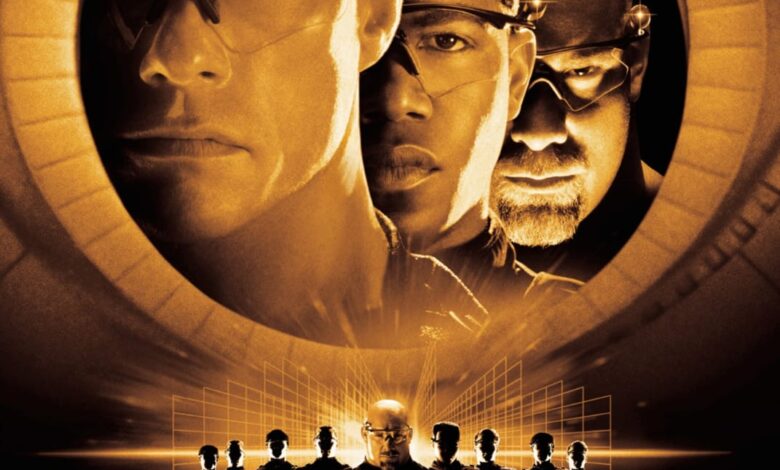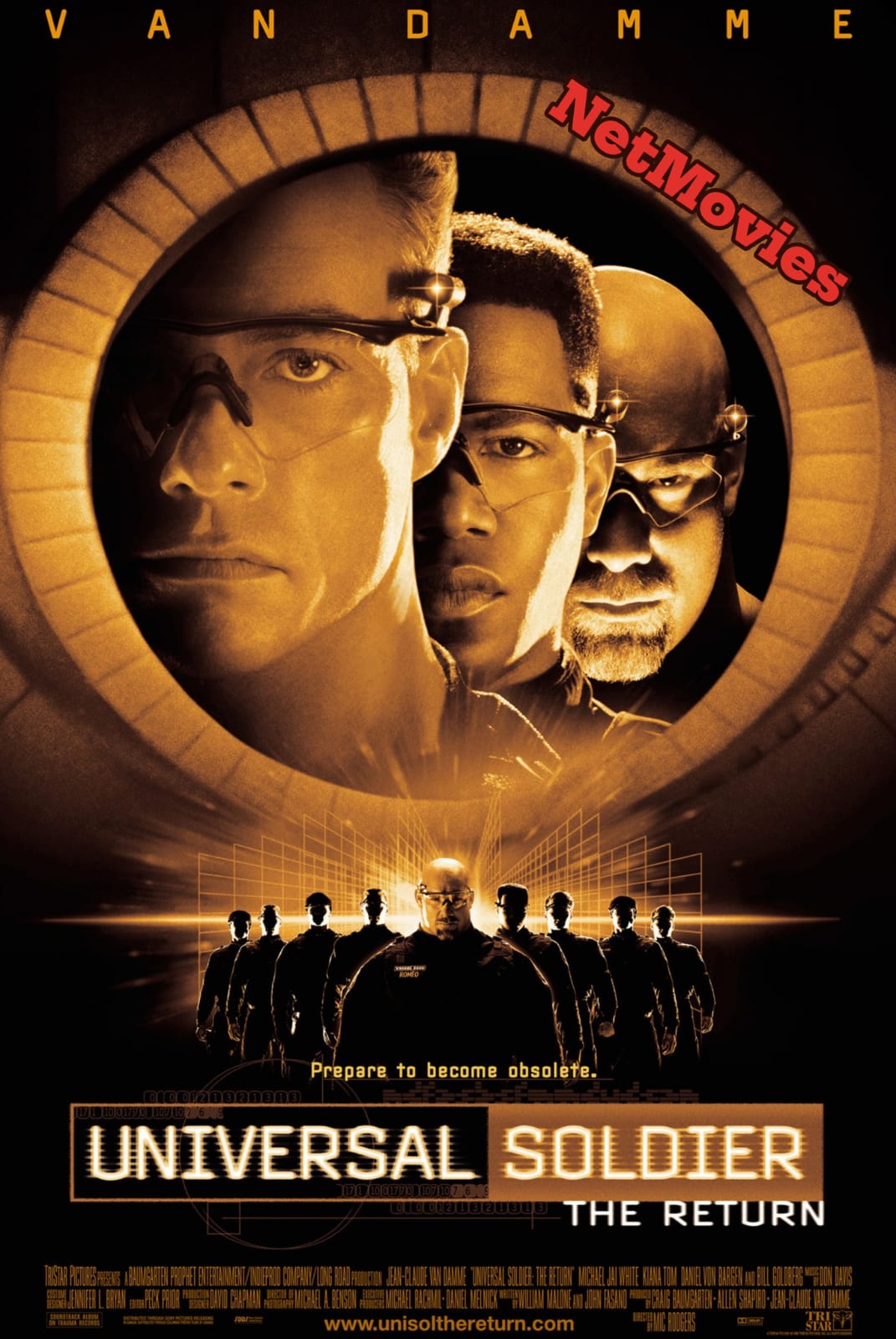
|
Getting your Trinity Audio player ready...
|

#UniversalSoldier #ActionMovie #EpicScene #FightScene #MovieClip #VanDamme #MartialArts #MovieTime #MovieBuff #ClassicAction #SciFiAction #Cinematic #ExplosiveScene #MustWatch #MovieNight
on Unsplash.com
Universal Soldier
Although the idea of the Universal Soldier originated in science fiction, it has since been the focus of significant military and scientific research. The concept of developing a soldier with superhuman skills and the ability to adapt to any setting has captivated the interest of futurists and military strategists alike.
Beginning with early attempts to improve human physical and mental capacities and the creation of cutting-edge technologies for military use, the Universal Soldier program has evolved over time.
Since major developments in fields like biotechnology, cybernetics, and artificial intelligence have made it possible to create enhanced soldiers, the idea has progressed from pure conjecture to a possible reality. With numerous fictional works examining the possible repercussions of producing superhuman warriors, the Universal Soldier program has generated both interest & concern.
Key Takeaways
- The Universal Soldier program has evolved from science fiction to a potential reality in modern warfare.
- Universal Soldiers could play a significant role in future warfare, with enhanced physical and mental capabilities.
- The ethical and moral implications of creating Universal Soldiers raise concerns about the potential for abuse and misuse in combat.
- Advancements in technology are driving the potential for the creation of Universal Soldiers, raising questions about the future of warfare.
- The human cost of creating and deploying Universal Soldiers raises ethical and moral concerns about the impact on individuals and society.
The idea has been portrayed in a variety of ways, from popular literature to highly successful films, reflecting society’s fascination with the idea of surpassing human limitations. Science fiction and reality are becoming more and more muddled as technology develops, which raises significant ethical and moral concerns about engaging in such activities. The function of universal soldiers in contemporary combat has been hotly contested & the subject of much conjecture.
Advocates contend that improved soldiers could give their respective armed forces a major edge in combat due to their superior mental & physical prowess.
The ability of Universal Soldiers to function in harsh conditions, endure high levels of physical strain, and make snap decisions has prompted some military strategists to support the creation and use of these improved combatants.
On the other hand, critics raise concerns about the implications of unleashing superhuman soldiers in armed conflicts. The idea that soldiers might be stronger, faster, and more intelligent raises moral concerns about the nature of conflict & the possibility of using excessive force. Also, the deployment of Universal Soldiers might intensify already-existing geopolitical tensions and spark an arms race aimed at producing ever-more-potent and sophisticated military hardware. Beyond the field of military strategy, the development of Universal Soldiers brings up important moral and ethical issues. Fundamental ideas about human identity, agency, and the nature of armed conflict are all called into question by the idea itself.
Fundamentally, the notion that humans can be improved to produce superhuman soldiers blurs the distinction between humans and machines, which raises worries about the potential for dehumanizing conflict & the loss of humanity. Also, the ethical ramifications encompass issues of autonomy, consent, and enhanced individuals’ rights. Invasive techniques, genetic engineering, & technological advancements may be used to turn regular soldiers into Universal Soldiers, which presents difficult questions about individual autonomy and bodily integrity. Also, concerns regarding the well-being and agency of enhanced soldiers are raised by the possible psychological effects of their possible exposure to severe physical & mental alterations.
| Topic | Data/Metrics |
|---|---|
| Universal Soldier | Various generations, capabilities, and deployments |
| Origin and Evolution of the Universal Soldier Program | Historical timeline, key milestones, and technological advancements |
| The Role of Universal Soldiers in Modern Warfare | Effectiveness, strategic impact, and tactical applications |
| Ethical and Moral Implications of Creating Universal Soldiers | Debates, ethical frameworks, and moral dilemmas |
| Advancements in Technology and the Future of Universal Soldiers | Emerging technologies, research and development, and future projections |
| The Physical and Mental Enhancements of Universal Soldiers | Biological, neurological, and psychological enhancements |
| The Impact of Universal Soldiers on Global Security and Politics | Geopolitical implications, international relations, and security dynamics |
| The Controversy Surrounding the Use of Universal Soldiers in Combat | Public opinion, political debates, and legal considerations |
| The Human Cost of Creating and Deploying Universal Soldiers | Physical and psychological toll on individuals, families, and society |
Technological developments have been crucial in determining Universal Soldiers’ future. Advancements in biotechnology, nanotechnology, neurology, and artificial intelligence have opened up previously unheard-of possibilities for improving cognitive abilities & human performance. Science fiction is no longer the only possibility for developing superhuman soldiers, thanks to advancements in neural implants that enhance cognitive processing & exoskeletons that increase strength & endurance.
Looking ahead, it appears that continuing advancements in cutting-edge technologies will likely influence Universal Soldiers’ future. The combination of biotechnology and AI has the potential to produce soldiers who are more resilient physically, have better cognitive capacities, and can adjust to a variety of combat situations. These developments, however, also bring up important issues regarding the moral limits of human enhancement and the possible repercussions of conflating natural and artificial talent.
Universal Soldiers are expected to undergo both mental and physical improvements, which will revolutionize military personnel’s capabilities. The potential benefits are numerous and profound, ranging from cognitive skills like decision-making, situational awareness, & information processing to physical attributes like strength, speed, endurance, and resilience. Technologies like neural interfaces, exoskeletons, genetic engineering, and cognitive augmentation have the potential to produce soldiers with previously unheard-of levels of performance & versatility. Advanced exoskeletons that can increase strength & endurance are among the physical improvements planned for Universal Soldiers, enabling soldiers to perform in demanding conditions & carry heavier loads. Also, genetic engineering methods can be used to improve physiological characteristics like bone density, muscle mass, and fatigue resistance.
On the mental front, soldiers may be able to process information more quickly, make snap decisions under duress, and sustain high levels of situational awareness in challenging combat situations with the help of neural interfaces and cognitive augmentation technologies. The possible use of Universal Soldiers has important geopolitical and international security ramifications. The deployment of superhuman troops into wars could upend established power structures and increase international tensions.
The possibility of one nation having a sizable military advantage thanks to upgraded troops may spark more rivalry and arms races centered on technologies for human enhancement. Concerns concerning the potential for misuse or abuse of enhanced capabilities as well as the destabilizing effects on international relations may also arise from the deployment of Universal Soldiers. The emergence of superhuman soldiers may prompt other nations to pursue similar programs in order to maintain strategic parity, leading to a proliferation of human enhancement technologies with far-reaching consequences for global security. The use of Universal Soldiers in combat is controversial because it raises important issues regarding human agency, the nature of war, and moral limits. According to critics, the use of superhuman troops might dehumanize armed conflict, which could have disastrous effects on civilian populations and global stability.
There are worries about the excessive use of force and the deterioration of moral boundaries in combat when soldiers are expected to possess improved physical and mental capacities. On the other hand, proponents assert that Universal Soldiers might offer a significant edge in combat, possibly lowering conventional force casualties & more successfully accomplishing strategic goals. As the geopolitical landscape becomes more complex, they contend that the need to safeguard military superiority and national security interests should be weighed against ethical considerations. Beyond immediate ethical concerns, the development & deployment of Universal Soldiers come at a high human cost.
Concerns regarding the welfare & agency of those undergoing genetic engineering, cybernetic implants, or other cutting-edge technologies are raised by the practice of improving people. Consideration must be given to the psychological & physical effects on enhanced soldiers as well as their possible return to civilian life following their service. Also, the wider societal ramifications of funding military-related human enhancement technologies call into question the priorities for tackling urgent global issues like social inequality, environmental sustainability, and public health. The financial investment in developing superhuman soldiers might take focus away from meeting basic human needs and widen social divides already present. In summary, the idea of Universal Soldiers is a complicated fusion of scientific discoveries, moral dilemmas, geopolitical ramifications, and social effects.
As human enhancement technologies develop further, it is crucial to have careful discussions and conduct thorough ethical analysis to manage the possible repercussions of pursuing such activities. It is important to carefully assess the moral limits of human enhancement in military settings in light of larger concerns about international stability, human rights, & global security.
FAQs
What is the Universal Soldier program?
The Universal Soldier program is a fictional concept that has been popularized in science fiction literature, movies, and video games. It involves the creation of highly advanced and enhanced soldiers through the use of cutting-edge technology, genetic engineering, and other scientific advancements.
What is the origin and evolution of the Universal Soldier program?
The concept of the Universal Soldier program has its roots in various works of science fiction, with the idea of creating superhuman soldiers dating back to ancient mythology. Over time, the concept has evolved to incorporate modern scientific and technological advancements, leading to a more detailed and complex portrayal of the Universal Soldier in popular media.
What is the role of Universal Soldiers in modern warfare?
In the realm of fiction, Universal Soldiers are often depicted as being used for highly specialized and dangerous military operations, where their enhanced physical and mental capabilities give them a significant advantage over traditional soldiers. They are often portrayed as being deployed in situations where conventional forces would be at a disadvantage.
What are the ethical and moral implications of creating Universal Soldiers?
The creation of Universal Soldiers raises numerous ethical and moral questions, including concerns about the potential for abuse of power, the loss of human autonomy, and the implications of creating beings with enhanced abilities. The ethical and moral implications of creating Universal Soldiers are a subject of ongoing debate and discussion.
What advancements in technology are shaping the future of Universal Soldiers?
Advancements in fields such as genetic engineering, artificial intelligence, robotics, and biotechnology are all contributing to the potential development of technologies that could be used to create Universal Soldiers. These advancements are shaping the future of the concept by making it seem increasingly plausible and realistic.
What are the physical and mental enhancements of Universal Soldiers?
In fiction, Universal Soldiers are often depicted as having enhanced strength, speed, agility, endurance, and cognitive abilities. They may also possess advanced sensory perception, resistance to pain, and other physical and mental enhancements that give them a significant advantage in combat situations.
What is the impact of Universal Soldiers on global security and politics?
The potential existence of Universal Soldiers could have a significant impact on global security and politics, as it could shift the balance of power between nations and potentially lead to new arms races and geopolitical tensions. The use of Universal Soldiers could also raise concerns about the potential for human rights abuses and violations of international law.
What is the controversy surrounding the use of Universal Soldiers in combat?
The use of Universal Soldiers in combat is a controversial topic, with concerns about the ethical, moral, and legal implications of deploying enhanced soldiers on the battlefield. There are also concerns about the potential for unintended consequences and the impact on the conduct of warfare and the treatment of combatants.
What is the human cost of creating and deploying Universal Soldiers?
The creation and deployment of Universal Soldiers could have significant human costs, including the potential for exploitation, abuse, and the loss of human autonomy. There are also concerns about the potential for unintended consequences and the impact on the individuals who are subjected to the process of becoming Universal Soldiers.
DOWNLOAD AND WATCH













